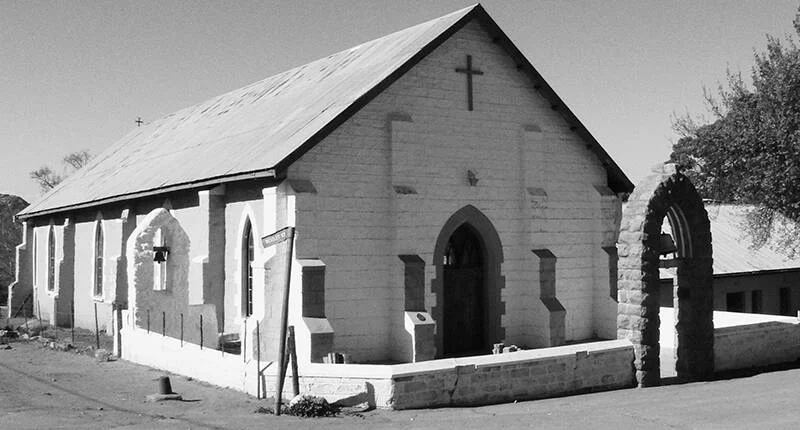Although Christian lay people and their leaders in Congo almost universally affirm the existence of witches, a significant number manage to navigate life without giving into fear or to the pressures of family members who want them to consult a shaman (or a Christian prophet) in order to identify the alleged witch behind this or that experience of suffering.
I began developing this idea in my last post, “Against Satan’s Deceptive Rule.” In my experience, at least some churches seem to be developing an alternative way of talking about witchcraft that, while not giving up on the idea of witches, nevertheless seems to enable at least some believers to resist the dominant cultural scripts that exert a powerful influence on so many.
Studies in Alternative Witchcraft Discourse
Two years ago I began working on a research project in an effort to collect ethnographic data that could help give an account of this alternative discourse. I recorded about twenty hours of interviews with fourteen church leaders, asking them to tell me about experiences in their ministry that related in some way to witchcraft. In addition to these interviews, during my time in northeastern DR Congo last year, I happened to hear one of the local pastors Some churches seem to be developing a way of talking about witchcraft that enables some believers to resist the dominant cultural scripts.give a series of three sermons on the topic of witchcraft. (This topic is rarely addressed in sermons in the “mission churches.”) I also obtained a copy of the nine pages of printed sermon notes that were made available for purchase on that occasion.
I have since transcribed most of the interviews and began to analyze the data. There is still more to be done, and I hope to continue doing further interviews as the opportunity arises. So far, however, there seem to be three different types of pastoral responses or interventions that contribute to the kind of “alternative witchcraft discourse” that I think can help to defuse the fears, tensions, and conflicts that so often characterize social contexts where people believe in witches.
I noted these three types of response in my last post. The first is theological. There are particular biblical themes that church leaders address as they help parishioners face their fears and the pressures from family members to “do something” about witches. The second I label epidemiological: Here I am thinking of ways in which church leaders resist the dominant ideas about how one knows that a particular problem is due to witchcraft, or that a certain person is indeed a witch. The third might be called practical, holistic intervention. Here I am thinking of a gamut of things that church leaders do as they deal with concrete situations involving witchcraft—things they do besides teaching biblical truth from the pulpit or challenging particular epistemological procedures. Let me begin, in this post, to illustrate the first type of pastoral response.
Theological Discourse
From the interviews, there seemed to be at least three themes from the Scriptures that pastors referred to.
1. Witches find their power from Satan’s dominion.
The first of these is a corollary of the virtually universal insistence among African church leaders that witches derive their powers from demonic spirits operating under Satan’s dominion. As Pastor Makpela Ngboyo puts it in his bachelor’s thesis on the topic of witchcraft among people of his ethnic group, the acts of witches “serve the devil, whose goal it is to work against God’s will for human beings” (Ngboyo, 53)
This idea in and of itself is not necessarily all that helpful. Both church leaders who supported the Salem witch trials in 1692 and those today who cast demons of witchcraft out of young children in Kinshasa and Lagos held or hold to a type of “witch-demonology” (to use Dr. Opoku Onyinah’s phrase). But the church leaders I interviewed tended to draw an inference from this that could impact how believers approach these matters.
In his sermon series, for example, Pastor Balidja argued that if our struggle is not against “flesh and blood” but rather against demonic powers (Eph 6:10ff), then there is really no point in trying to identify or deal with human witches. One interviewee insisted that in his own teaching, rather than focusing on the identity of witches, he has sought to remind people that instead we should remember that the real enemies are Satan and his demons. He explained himself further in a way that demonstrates one aspect of the potential practical value of this shift of focus from humans to demons:
BN: “By focusing on the enemy, the devil, we also fulfill the Word because Jesus has come to deliver human beings. Now if we put our focus on humans, as if…
TS: …if we see human beings [witches] as the enemies…
BN: …as enemies . . . we won’t want to come near them.
TS: That’s right.
BN: And in not coming near them we fail to accomplish our mission. So that is the situation.
Thus, the effort to identify human witches fosters fear which in turn tends to impede evangelism. If we are sent to preach the gospel to all, then we must not allow ourselves to identify human beings as the enemy.
2. God is sovereign, even over the demonic.
Second, these leaders expressed confidence in the sovereignty of God in the midst of whatever difficulties they or others might face. One, for example, referred to the story of Job to support the idea that Satan’s ability to afflict humans is limited by God’s sovereign purposes in the lives of his people. Another put it this way:
EM: Yes, [witches] have power. But . . . they can only go as far as the limits that God has set for them. . . . If God does not give them permission to take my life away from this earth, then they will only trouble themselves for nothing. But one thing is certain. . . . We must put our confidence in God who is the true protector. In any case, if you put your trust in Jesus; . . . in this God in whom you have trusted, witches can do nothing to you, unless perhaps God allows it. But I know that if God allows it, this is not to knock you down. So we should not be afraid of witches, but keep our confidence in God and it is God who will take care of us.
3. Christ’s victory conquers the fear of witches.
A third theological conviction often expressed is that the victory of Christ over all the demonic powers through his cross and resurrection renders fear of witches completely unnecessary. One interviewee admitted that before coming to faith in Christ he, like so many others, was terrified of witches. This fear persisted for some time after his initial conversion, but gradually he came to Rather than focusing on the identity of witches, he has sought to remind people that we should remember that the real enemies are Satan and his demons.understand that “he who is in you is greater than he who is in the world” (1 John 4:4 ESV). Pastor Ngboyo comments “Christ is now not only in heaven but also is spiritually present everywhere. Christ’s omnipresence will reassure . . . Christians concerning their security. They are not alone, but live together with their Savior who fills all things with his presence (Eph. 4 :10)” (86).
To conclude, it is worth highlighting that none of these “doctrinal positions” is held in anything like a purely theoretical way. These church leaders are often put in situations where their confidence in the doctrines mentioned above is put to the test in day-to-day life. So, for example, in a given situation the very real question might be, “Will you actually trust the goodness and sovereign power of God and the victory of Christ over the demonic powers in the face of the tragic death of your baby daughter, and the pressures coming from friends and loved ones who want you to determine the identity of the witch who killed her?” At a retreat I attended in April 2014, two pastors told of being willing to put themselves and their families at risk by accepting assignments to churches located in places where witches were known to be particularly active. They went with some trepidation, but as they stepped out in faith their subsequent testimonies are now part of a developing alternative witchcraft discourse that reinforces faithful living in the teeth of prevailing social expectation, pressure and practice.
Bibliography
Makpela Ngboyo, “La Conception Des Sorts Chez Les Mbuza Et Ses Implications Pour La Croissance Spirituelle Du Chrétien” (Institut Supérieur Théologique de Bunia, 2004).
Richard Balidja, La sorcellerie: Un fléau à combattre. Bunia, République Démocratique du Congo, Paroisse Francophone Ville de la CECA-20, 2014. Cf. Stephen D. H. Rasmussen, “A Case Study of Christian Response to Sickness, Death and Witchcraft in Northwestern Tanzania,” in African Missiology: Contribution of Contemporary Thought, ed. Stephen Mutuku Sesi, et al. (Nairobi, Kenya: Uzima, 2009), 123.





Comments
Be the first one to make a comment!